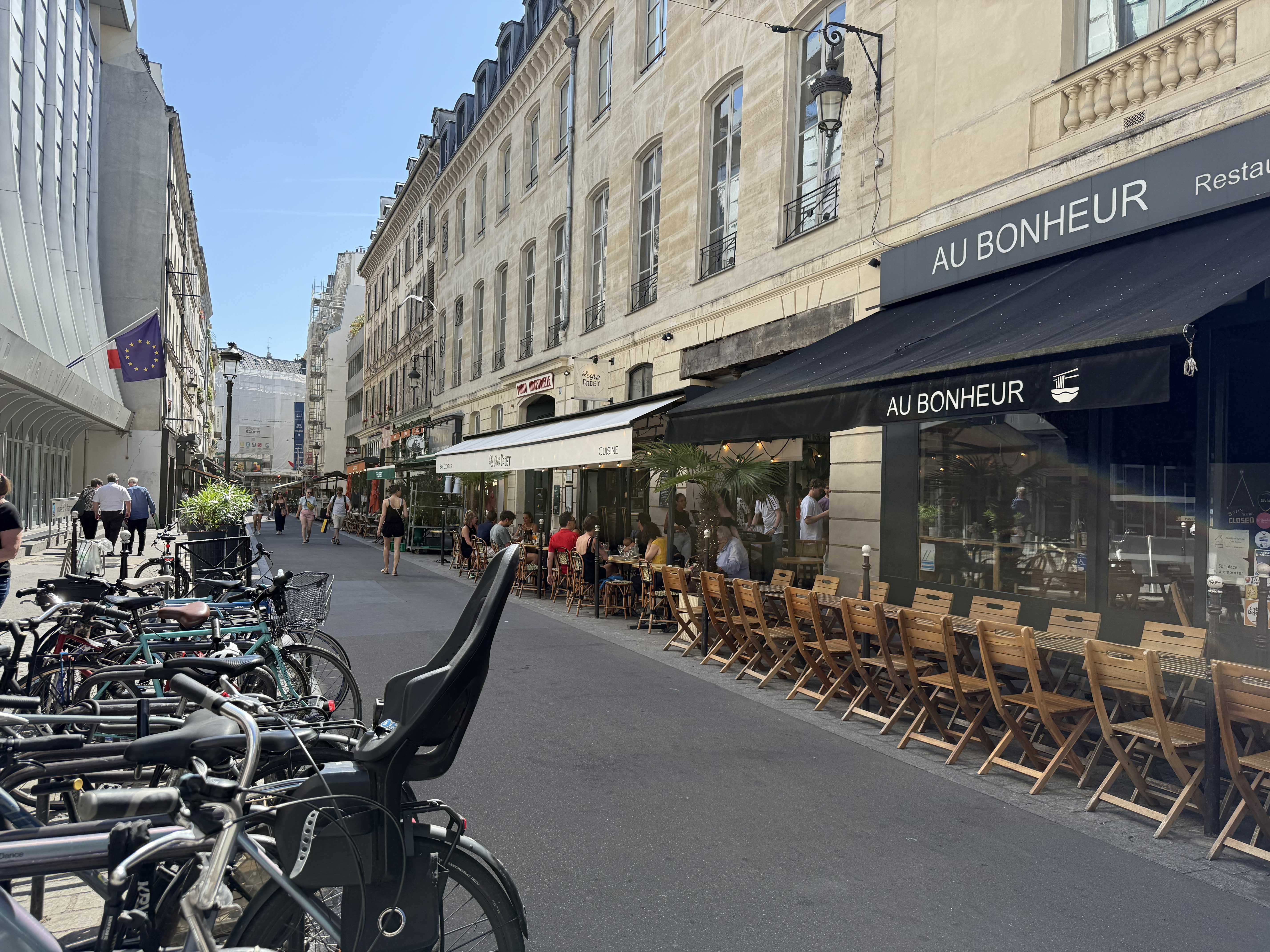.png)
October 28, 2025
Paris in 15 Minutes: Lessons from the City on Designing Municipalities of the Future
Walking through the streets of Paris, the sounds are strikingly different from what many of us associate with a typical downtown. Instead of honking cars and roaring engines on multi-lane roads, there’s the sound of voices: neighbors chatting, children laughing, footsteps on widened sidewalks.
.jpg)
Paris, long known as a city of beauty, is now becoming a model of transformation, reshaping itself into what’s known as a 15-Minute City, a place where nearly all daily needs can be met within a short walk or bike ride. A 15-Minute City isn’t just about convenience; it’s about rethinking land use, mobility, and infrastructure to foster healthier, more sustainable lives.

Progressive Companies’ Suzanne Schulz, FAICP, Urban Planning Practice Leader was selected to join a distinguished Midwest Delegation to study this ambitious transformation firsthand. Sponsored by the McKnight, Kresge, and TransitCenter Foundations, the week-long learning exchange brought together 18 Midwest leaders to explore how Paris is rapidly advancing this new urban model.
Throughout the trip, the delegation engaged with top urban thinkers and city officials, toured redesigned streets and neighborhoods, and explored firsthand how a city can radically reduce its carbon footprint while improving quality of life.
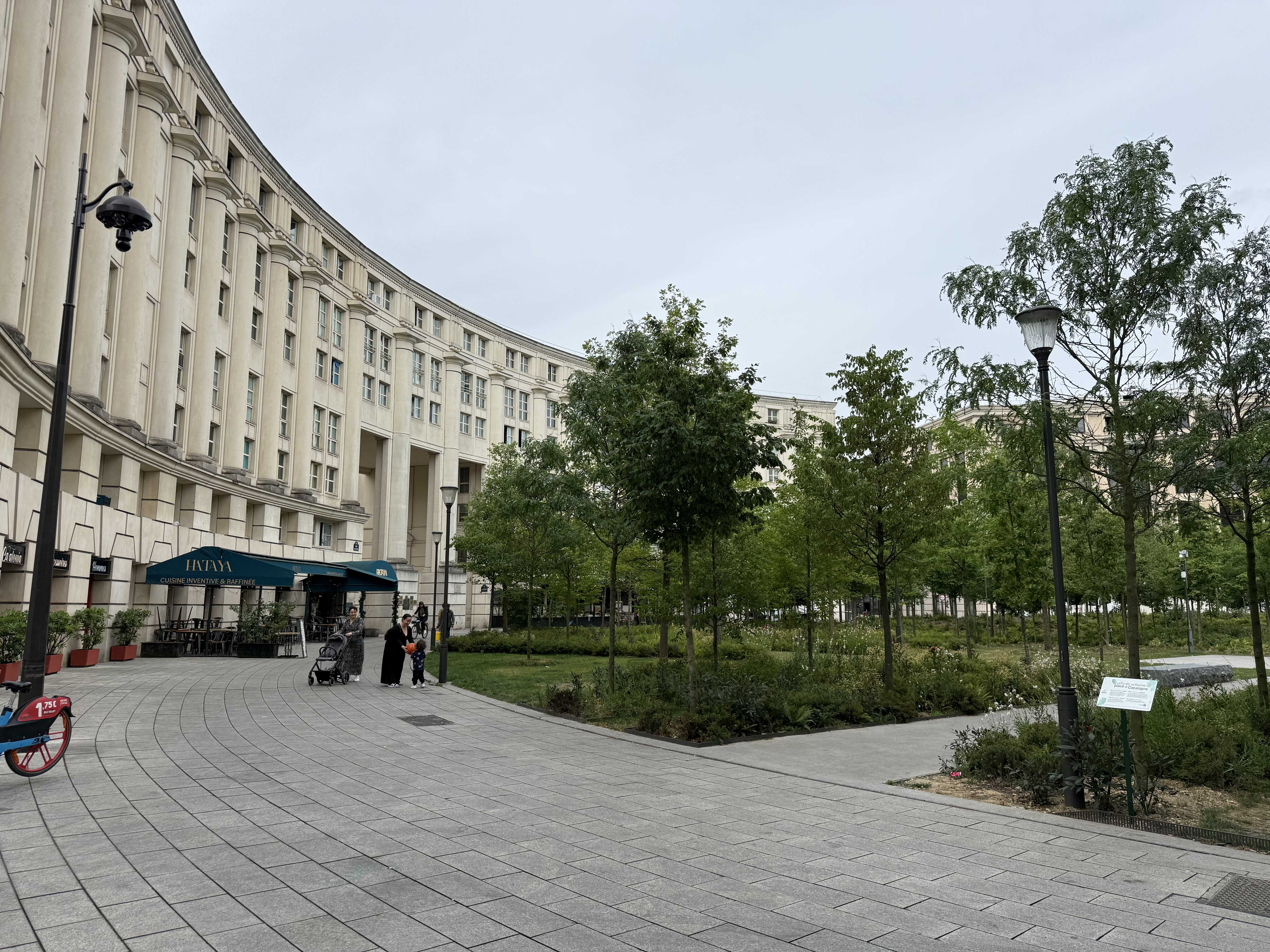
“It is stunning what Paris has been able to achieve in two decades,” reflected Suzanne. “Car volumes and car ownership have been reduced by nearly 50%. Air quality levels have improved by 40%. One of the things that most surprised me was the reduction in noise pollution – instead of hearing trucks and cars, we heard voices – even at major intersections.”
Key Insights for Reimagining Local Municipalities
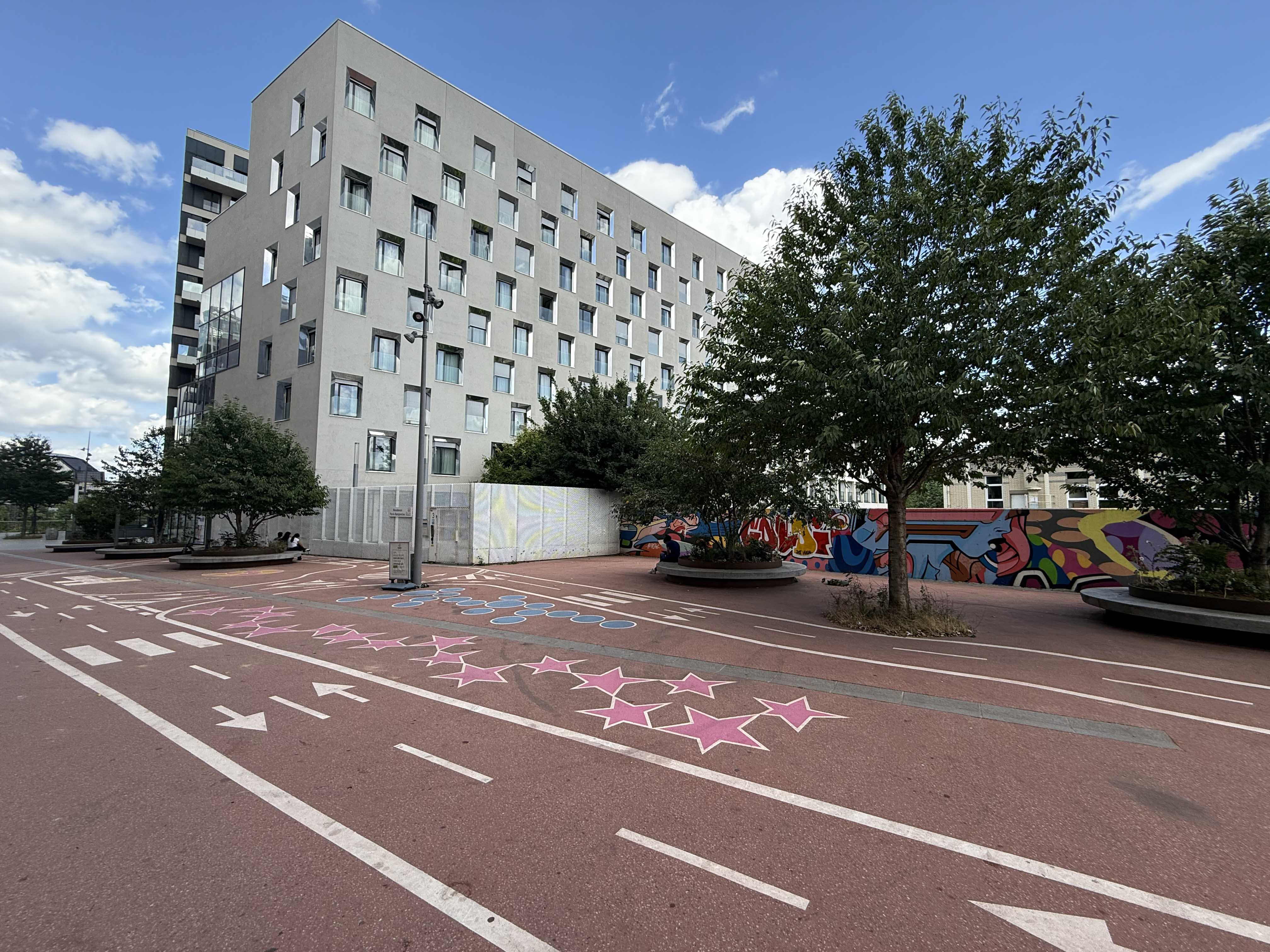
From school streets that prioritize children’s safety to eco-districts built on former industrial land, every stop along the way was rich with insight:
- Urban governance and mobility systems: Paris has taken bold steps to restructure its infrastructure and transit strategies. Nacima Baron, Professor of Human Geography at Université Gustave Eiffel, offered a detailed look at the city's governance and policy shifts.
- Designing for people over cars: A walking tour led by Christophe Najdovski, Deputy Mayor of Paris, showcased streets transformed into shared spaces for people and nature. Suzanne noted, “We strive for the same vision of public spaces where everyone can feel safe and independent without relying on car ownership.”
- Reimagining redevelopment: The Clichy-Batignolles eco-district illustrated how disused land can be turned into thriving neighborhoods—mixing green space, housing, and transit in a way that reduces car dependency. Carlos Moreno, author of The 15 Minute City: A Solution to Saving Our Time & Our Planet shared the transformation story of the former rail yard.
- Biking as infrastructure, not just recreation: A guided bike tour with Charlotte Guth, Head of Paris’s Cycling Mission, provided an in-depth look at how cities can build robust, safe networks for everyday biking—something we’re actively working to integrate into our projects across the Midwest.
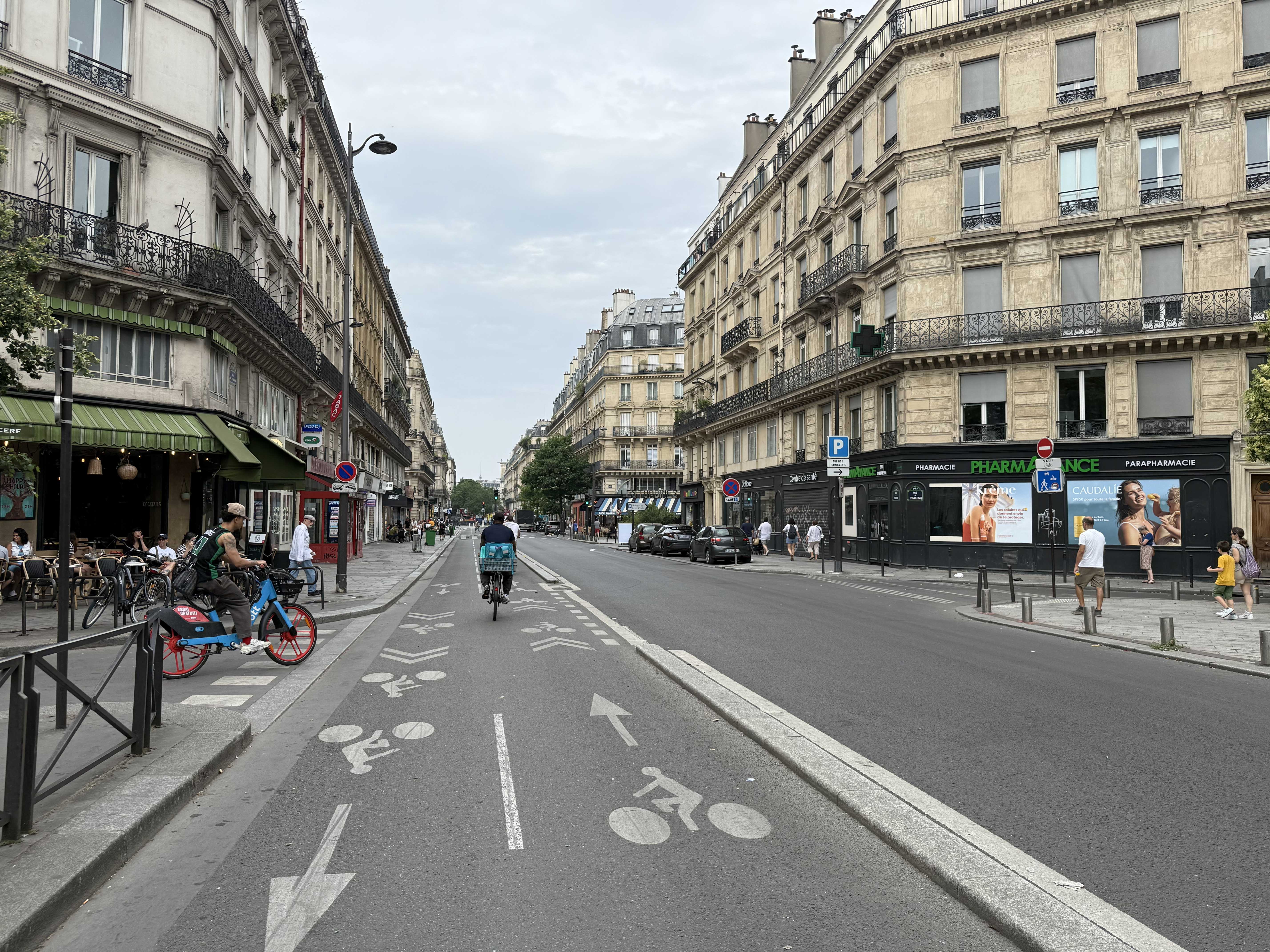
From Paris to the Midwest: Applying Global Thinking Locally
Suzanne returned with a renewed sense of what’s possible when policy meets intentional design: “The focus that leaders like Marie Hidalgo, Paris’ Mayor, have dedicated to improving quality of life and creating a more resilient community is nothing short of stunning. The purpose of the trip was to inspire leaders in the Midwest to be bold and create positive change. Our clients can benefit from learning about this inspirational example. Doing hard things can produce amazing results.”
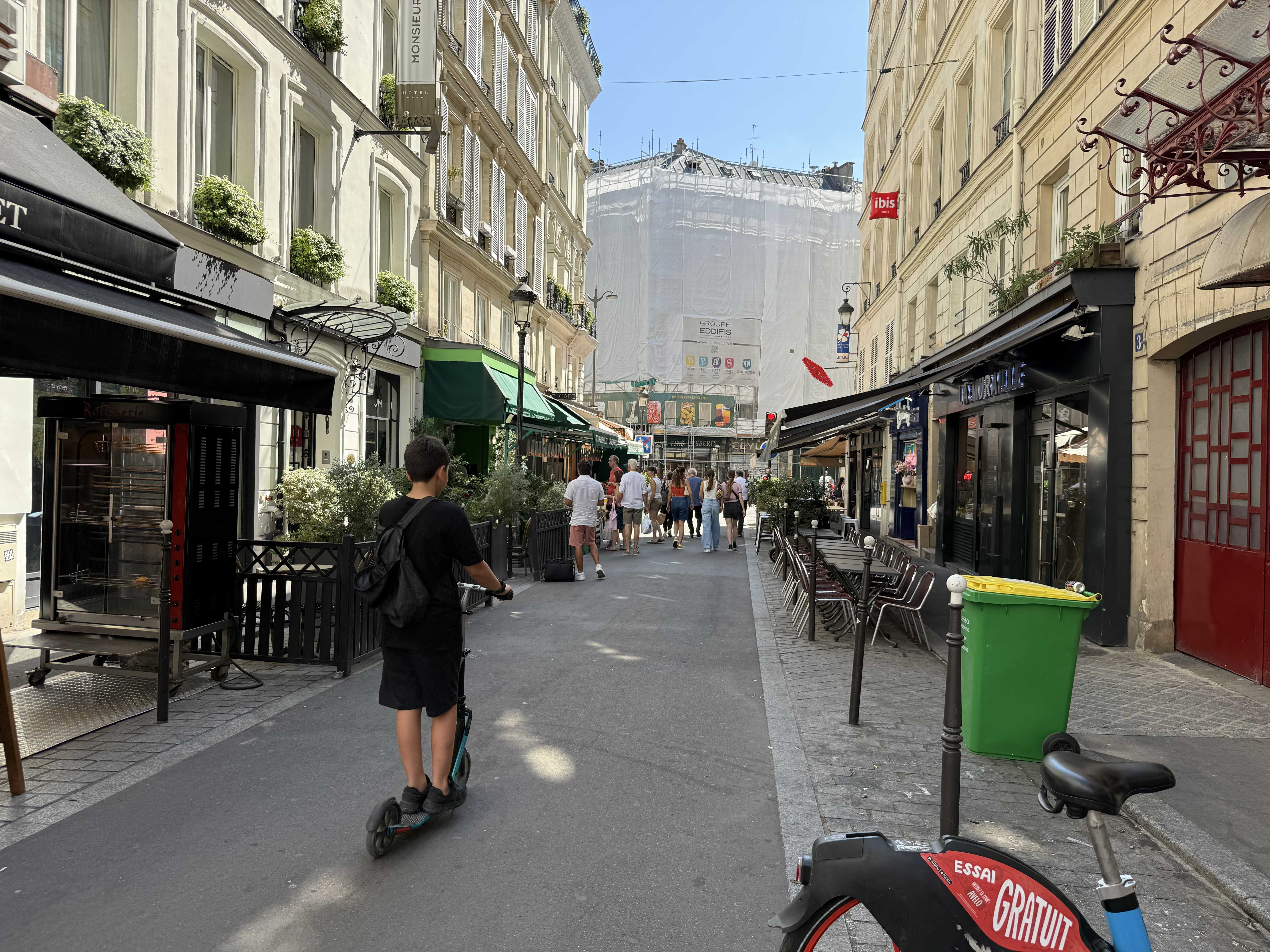
Paris demonstrates that the future of urban life is local, walkable, and deeply connected. But this transformation will not happen overnight—and it will require more than incremental change. Building truly livable municipalities demands bold ideas and decisive action, grounded in the principles of the 15-minute city, to reimagine how communities grow and thrive.
At Progressive Companies, we're committed to helping communities build for the future—places that are vibrant, inclusive, and resilient by design. We’re sharing these strategies with clients offering guidance on how to integrate non-motorized facilities, green infrastructure, and mixed-use design into community plans and private development alike.
Together, we can build places that move beyond the car and toward a more livable, resilient tomorrow.
